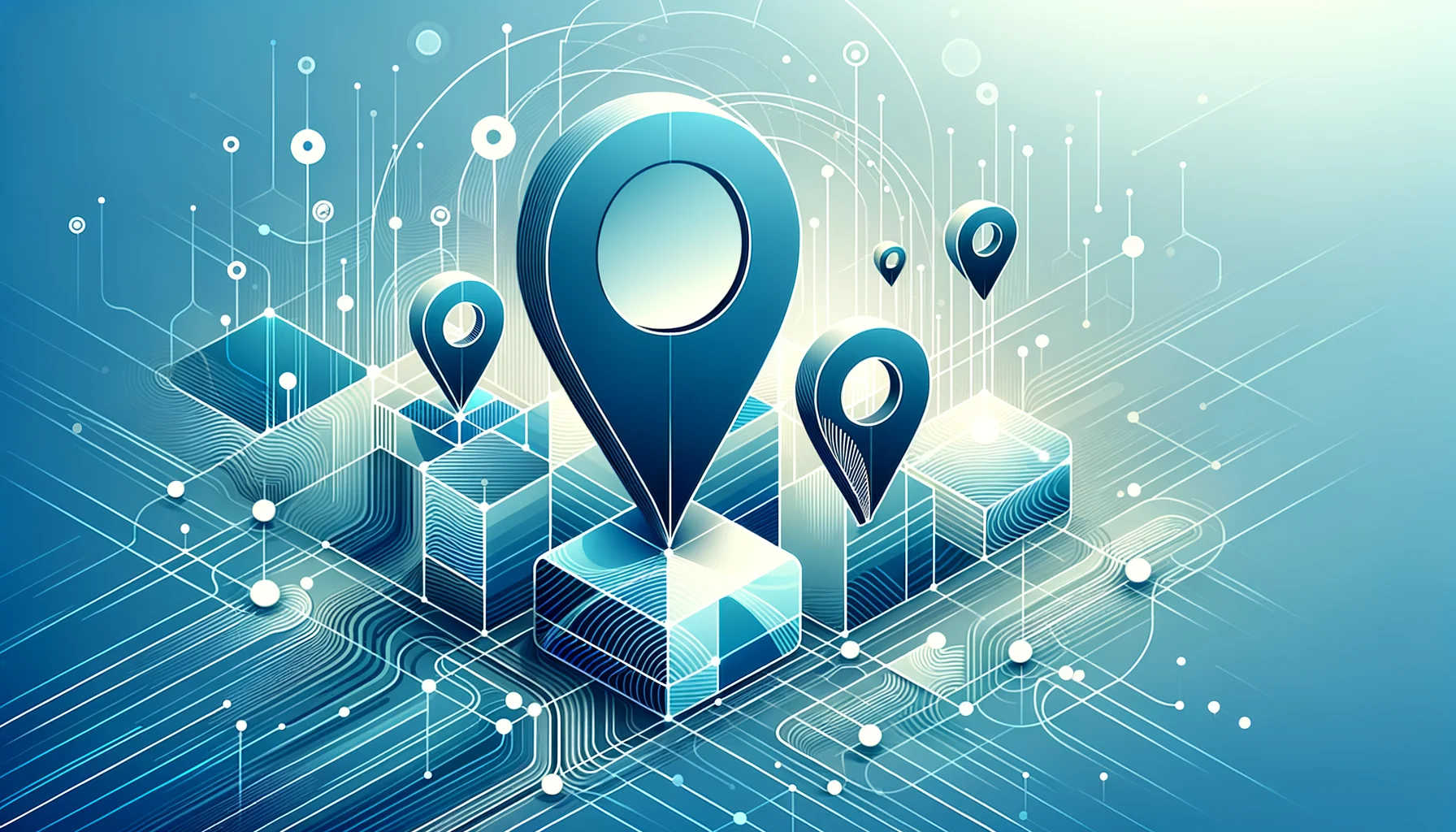How to Check if Your Business Is Listed in the SBA Directory: Complete Guide

Navigating the world of small business can be complex, especially when it comes to government resources and listings that could potentially benefit your company. One such resource that often flies under the radar is the SBA Directory—a valuable tool that could open doors to government contracts, loans, and enhanced credibility. But before you can reap these benefits, you need to know if your business is already listed or how to get it listed if it’s not.
Many business owners I’ve spoken with are surprised to learn they might already be in the directory without even knowing it! Others struggle with understanding exactly what this directory is and why it matters in the first place. Whether you’re a seasoned entrepreneur or just starting out, knowing your SBA listing status is more important than you might think.
TL;DR: Checking Your SBA Directory Listing
- The SBA Directory is an official government database that lists recognized small businesses
- Being listed improves credibility and increases opportunities for government contracts
- Check your listing by visiting the SAM.gov website and using their search function
- If not listed, register through SAM.gov with your business license, tax ID, and other documents
- Maintain accuracy by updating your information regularly to avoid potential issues
Understanding the SBA Directory
The SBA Directory, more formally known as the Small Business Administration’s database of recognized businesses, serves as an official government record of small businesses throughout the United States. While many people confuse it with commercial directories like Yelp or Google My Business, the SBA Directory is distinctly different—it’s an authoritative listing maintained by a federal agency rather than a marketing platform.
At its core, the SBA Directory functions as part of the System for Award Management (SAM), which is the primary database for businesses that want to do business with the federal government. Think of it as the government’s rolodex of verified businesses that meet specific criteria.
The purpose of this directory extends beyond simple recognition. It serves as a crucial verification mechanism for federal agencies seeking to fulfill their small business contracting requirements. According to the U.S. Small Business Administration, the government aims to award at least 23% of federal contracting dollars to small businesses annually—making this listing an essential stepping stone for businesses looking to tap into government opportunities.
Key Differences: SBA Directory vs. Business Directories
| Feature | SBA Directory | Commercial Directories |
|---|---|---|
| Purpose | Government contracting verification | Marketing and local discovery |
| Authority | Federal government agency | Private companies |
| Verification | Extensive documentation required | Minimal or self-reported |
| Primary Benefit | Access to federal contracts | Customer visibility |
Importance of SBA Listing
Having your business properly listed in the SBA Directory can be a game-changer for small enterprises. The benefits extend far beyond mere recognition—they translate into tangible business opportunities and advantages that can significantly impact your bottom line.
Access to Government Contracts
Perhaps the most compelling reason to ensure your business is listed is the access it provides to federal contracts. The U.S. government is the world’s largest customer, spending billions of dollars annually on products and services. Without proper registration in the SBA Directory, your business is essentially invisible to federal contracting officers. Being listed opens the door to these lucrative opportunities.
According to the SBA Goaling Report, small businesses received over $154 billion in federal contracts in recent years. That’s money you could be competing for if properly registered.
Federal Contracting Impact Statistics
Minimum federal contracting goal for small businesses
Annual federal contracts awarded to small businesses
SAM registration required for federal contracting
Enhanced Loan Eligibility
Many small business owners don’t realize that SBA listing status can influence loan approval processes. Lenders often check this directory to verify business legitimacy and compliance with federal standards. Being listed can streamline loan applications and potentially improve your chances of approval for both government-backed and conventional loans.
I remember speaking with a business owner who was surprised when her loan officer mentioned checking her SBA listing status. She hadn’t realized this was part of the verification process, but it ultimately helped her secure the financing she needed to expand her operations.
Business Credibility Boost
Beyond the direct financial benefits, an SBA listing serves as a credibility marker. It demonstrates that your business meets federal standards and has undergone verification processes. This can be particularly valuable when dealing with larger corporations or organizations that prioritize working with established, verified vendors.
Think of it as a government-issued vote of confidence in your business operations—something that can be leveraged in marketing materials and business presentations to distinguish your company from competitors who lack this official recognition.
Being listed in the SBA Directory also positions your business for inclusion in various white label business directory software solutions that pull data from official government sources, further extending your digital footprint.
SBA Company Search: Steps to Check SBA Listing
Now that you understand the importance of being listed, let’s walk through the process of checking whether your business is already included in the SBA Directory. The SBA search process is fairly straightforward, though the government website navigation can sometimes be a bit cumbersome.
Accessing SAM.gov
The first step in checking your business’s SBA listing status is to visit SAM.gov (System for Award Management), which has replaced the former CCR (Central Contractor Registration) system. This is the primary portal where all businesses wanting to work with the federal government must register.
- Open your web browser and navigate to SAM.gov
- On the homepage, look for the “Search Records” option in the main navigation menu
- You do not need to create an account just to search for your business
If you’re familiar with ways to access business park directory systems, you’ll find some similarities in how government directories organize their search functions.
Using the SBA Business Lookup Function
Once you’re in the search section of SAM.gov, you have several options for locating your business:
- Search by Business Name: Enter your company’s exact legal name
- Search by DUNS Number: If you have a DUNS (Data Universal Numbering System) number, you can enter it here
- Search by CAGE Code: If you know your Commercial and Government Entity code, this is often the most precise search method
I generally recommend starting with your business name search, but be aware that the system is quite literal—if your business is “Smith Consulting, LLC” make sure to enter it exactly that way, not just “Smith Consulting.”
Interpreting Search Results
After submitting your search, you’ll see one of three outcomes:
- Your business appears in the results: Congratulations! You’re already listed in the SBA Directory. Click on your business name to view your listing details and verify all information is accurate
- No results found: This indicates your business is not currently registered
- Similar businesses appear, but not yours: This could mean your business is registered under a slightly different name, or it could mean you’re not registered at all
If you’re having trouble finding your business even though you believe it should be listed, try some of the search techniques used in how to search businesses in fslocal directory tips, as many government and commercial directories share similar search logic.
One thing I’ve noticed personally is that sometimes businesses are registered under slightly different variations of their name. For instance, a client of mine couldn’t find their listing until we realized they were registered under “ABC Solutions Incorporated” rather than “ABC Solutions Inc.” These small differences matter in database searches!
How to Get Listed in SBA Directory
If your SBA company search comes up empty, don’t worry—getting listed is a straightforward process, albeit one that requires attention to detail and some patience. Here’s what you need to know about getting your business listed in the SBA Directory.
Eligibility Criteria
Before beginning the registration process, ensure your business meets the basic eligibility requirements:
- Your business must operate in the U.S. or its territories
- You must have a physical U.S. address
- You need a DUNS number (obtainable for free from Dun & Bradstreet)
- Your business must meet SBA size standards for small businesses in your industry
- You need an EIN (Employer Identification Number) from the IRS
Size standards vary by industry and are typically based on either annual receipts or number of employees. The SBA size standards tool can help you determine if your business qualifies as “small” in your particular industry.
Required Documents
Before starting the application process, gather these essential documents:
- Business license and/or articles of incorporation
- Tax identification numbers (EIN, SSN for sole proprietors)
- DUNS number
- Banking information (for electronic funds transfer)
- Business address and contact information
- NAICS code(s) that describe your business activities
Having these documents ready will streamline the registration process and prevent delays caused by having to search for information midway through.
Application Process
The actual registration process takes place through SAM.gov:
- Create a user account on SAM.gov if you don’t already have one
- Click on “Register Entity” in your user dashboard
- Select “I want to register my entity to do business with the U.S. government”
- Follow the guided process to enter your business information
- Complete all required sections, including Core Data, Assertions, Representations and Certifications, and Points of Contact
The process is somewhat detailed and can take 1-2 hours to complete if you have all your information ready. Don’t rush through it—accuracy is crucial.
After submission, the approval process typically takes 7-10 business days, though it can sometimes take longer during busy periods. You’ll receive notification when your registration is active, at which point your business will be officially listed in the SBA Directory.
Learning to register properly is an important part of key steps run successful directory website business interactions, as many directory systems follow similar verification processes.
Pro Tip: Document Everything
Save copies of all submitted documents and confirmation emails. Create a dedicated folder with your DUNS number, CAGE code, and SAM.gov login information. You’ll need these for renewals and updates, and having them organized saves tremendous time down the road.
Maintaining Accuracy in Your SBA SAM Listed Status
Once your business is successfully listed in the SBA Directory, your responsibility doesn’t end there. Maintaining accurate information is critical for continued benefits and compliance with the SBA SAM listed requirements.
Regular Verification Requirements
SAM registrations must be renewed annually to remain active. The system will send email reminders to the email address associated with your registration approximately 60, 30, and 15 days before expiration. Mark these dates in your calendar and treat them as important deadlines.
Even if nothing has changed in your business, you must still complete the renewal process. Failure to renew will result in your registration becoming inactive, which can disrupt ongoing contracts and prevent you from being awarded new ones.
Updating Business Information
Any time your business information changes, update your SAM profile immediately. This includes:
- Business name changes
- Address changes
- Changes in ownership structure
- Banking information updates
- Contact information changes
To update your information, simply log into your SAM.gov account, navigate to your entity registration, and select “Update Entity.” You’ll be guided through the sections that need updating.
I once worked with a small construction company that relocated their office but forgot to update their SAM registration. Six months later, they were confused about why they weren’t receiving bid notifications—turns out all communications were going to their old address! It was a simple fix, but it had cost them potential opportunities.
Proper organization of your business information follows many of the same principles as how to organize active directory for business environment strategies—keep things current, accurate, and well-documented.
Consequences of Inaccurate Information
Maintaining outdated or incorrect information in your SBA listing can have serious consequences:
- Missed contract opportunities due to failed communications
- Delayed payments if banking information is incorrect
- Potential compliance issues if your business size or status has changed
- Risk of suspension from federal contracting if information is significantly inaccurate
The federal government takes the accuracy of this information seriously—it’s not just a directory listing but a legal representation of your business to federal agencies.
| Update Type | Urgency | Impact if Delayed |
|---|---|---|
| Banking Information | Within 24 hours | Payment failures, contract delays |
| Business Address | Within 3 days | Missed notifications, failed communications |
| Contact Information | Within 1 week | Lost opportunities, verification issues |
| Ownership Changes | Within 30 days | Compliance violations, certification issues |
| Annual Renewal | Before expiration | Registration becomes inactive |
Benefits of SBA Listing Beyond Basic Registration
Now that we’ve covered the practical aspects of checking and maintaining your SBA listing, let’s dive deeper into the specific benefits this official recognition provides your business.
Expanded Networking Opportunities
Being listed in the SBA Directory puts you on the radar of prime contractors looking for small business partners to fulfill subcontracting requirements. Many large corporations with government contracts are required to subcontract a percentage of work to small businesses, and they often use the SBA small business search engine to identify potential partners.
This creates networking opportunities that might otherwise be inaccessible to small businesses. I’ve seen companies forge valuable long-term relationships that began with a simple directory lookup.
Specialized Program Eligibility
Proper SBA listing is the gateway to specialized contracting programs like:
- 8(a) Business Development Program for disadvantaged businesses
- HUBZone Program for businesses in historically underutilized business zones
- Women-Owned Small Business (WOSB) Program
- Service-Disabled Veteran-Owned Small Business (SDVOSB) Program
These programs provide competitive advantages through set-aside contracts and sole-source awards that are only available to properly registered businesses that meet specific criteria.
Marketing Advantage
Even if you’re not actively pursuing government contracts, your SBA listing serves as a marketing advantage. Many businesses proudly mention their official small business status in marketing materials, proposals, and pitches. It demonstrates legitimacy and compliance with federal standards—qualities that appeal to private sector clients as well.
This official recognition can be particularly helpful for newer businesses still establishing their reputation in the marketplace. It’s essentially a government-backed credential that distinguishes you from competitors who haven’t completed this verification process.
For businesses looking to establish comprehensive online presence, platforms like TurnKey Directories (turnkeydirectories.com) offer WordPress-based directory solutions that can integrate your official SBA status into professional directory listings, helping you maximize visibility across multiple channels.
Frequently Asked Questions
What is the SBA Directory?
The SBA Directory is an official database of small businesses recognized by the U.S. Small Business Administration. It’s part of the System for Award Management (SAM) and serves as the primary resource for government agencies looking to contract with small businesses. This federal registry verifies that businesses meet specific size standards and compliance requirements.
Why is it important for businesses to be listed in the SBA Directory?
Being listed in the SBA Directory is essential for accessing government contracts, enhancing credibility, improving loan eligibility, and participating in special small business contracting programs. Without listing, businesses cannot compete for federal contracts or access specialized programs like 8(a) or HUBZone set-asides that provide competitive advantages.
How do I check if my business is listed in the SBA Directory?
Visit SAM.gov and use the “Search Records” function. You can search by business name, DUNS number, or CAGE code to determine if your business is already listed in the directory. No account is needed for searching, and results appear immediately showing your registration status and details.
What is the SBA business lookup process?
The SBA business lookup process involves navigating to SAM.gov, selecting “Search Records,” and entering your business information using your legal business name, DUNS number, or CAGE code. The system will return matches showing your registration status, expiration date, and key business details if you’re listed.
What are the benefits of being listed in the SBA Directory?
Benefits include access to federal contracts worth billions annually, enhanced credibility with lenders and partners, improved loan eligibility, networking opportunities with prime contractors, eligibility for specialized small business programs, and marketing advantages that distinguish you from non-registered competitors.
How long does it take to get listed in the SBA Directory?
After completing your registration on SAM.gov, the approval process typically takes 7-10 business days, though it can sometimes take longer during busy periods or if there are issues with your application that need resolution. Ensure all documentation is accurate to avoid delays in processing.
Can I update my business information in the SBA Directory?
Yes, you can update your information by logging into your SAM.gov account, navigating to your entity registration, and selecting “Update Entity.” You should update your information whenever any business details change, including address, banking information, ownership, or contact details to maintain compliance.
What are the eligibility criteria for listing in the SBA Directory?
To be eligible, your business must operate in the U.S. or its territories, have a physical U.S. address, possess a DUNS number, meet SBA size standards for your industry, and have an EIN from the IRS. Your business must also qualify as “small” based on industry-specific employee or revenue thresholds.
How do I resolve issues with my SBA Directory listing?
For issues with your listing, contact the Federal Service Desk at 866-606-8220 or visit FSD.gov for technical support. For specific SBA questions, contact your local SBA office for personalized assistance with eligibility, certifications, or program-specific requirements.
What are common mistakes to avoid when listing in the SBA Directory?
Common mistakes include entering incorrect business information, failing to renew annually, not updating changed information promptly, selecting incorrect NAICS codes, and incompletely filling out all required sections of the registration. Double-check all entries and save documentation for your records.
Where can I find help with the SBA Directory listing process?
Help resources include the Federal Service Desk at 866-606-8220, your local SBA office, Procurement Technical Assistance Centers (PTACs), and the SAM.gov help section which offers guides and tutorials. SCORE mentors can also provide free guidance on the registration process.
What is the difference between SBA Directory and small business search profile?
The SBA Directory (through SAM.gov) is the official federal registration system required for government contracting, while a small business search profile typically refers to commercial directory listings or marketing profiles. The SBA Directory is legally binding and verified, whereas commercial profiles are generally for marketing purposes only.
Final Thoughts: Taking Action on Your SBA Directory Status
Whether you’ve discovered your business is already listed in the SBA Directory or you need to start the registration process, taking action now is crucial. The sooner your information is accurate and up-to-date, the sooner you can leverage all the benefits this official recognition provides.
Start by conducting that initial search on SAM.gov today. If you’re listed, verify every detail for accuracy. If not, gather the necessary documents and begin the registration process. The investment of time now can yield significant returns through expanded opportunities, enhanced credibility, and potential access to lucrative government contracts.
Your Action Plan: Next Steps
- Today: Conduct SBA business lookup on SAM.gov to check current status
- This Week: Gather required documents (DUNS, EIN, business license, banking info)
- Within 30 Days: Complete SAM.gov registration if not listed or verify accuracy if listed
- Ongoing: Set calendar reminders for annual renewal 60 days before expiration
- Quarterly: Review and update any changed business information immediately
Remember that this isn’t a one-and-done process—mark your calendar for annual renewals and make updating your SBA listing part of your regular business maintenance routine. Your future self (and your business bank account) will thank you for taking this important step toward maximizing your business potential.








